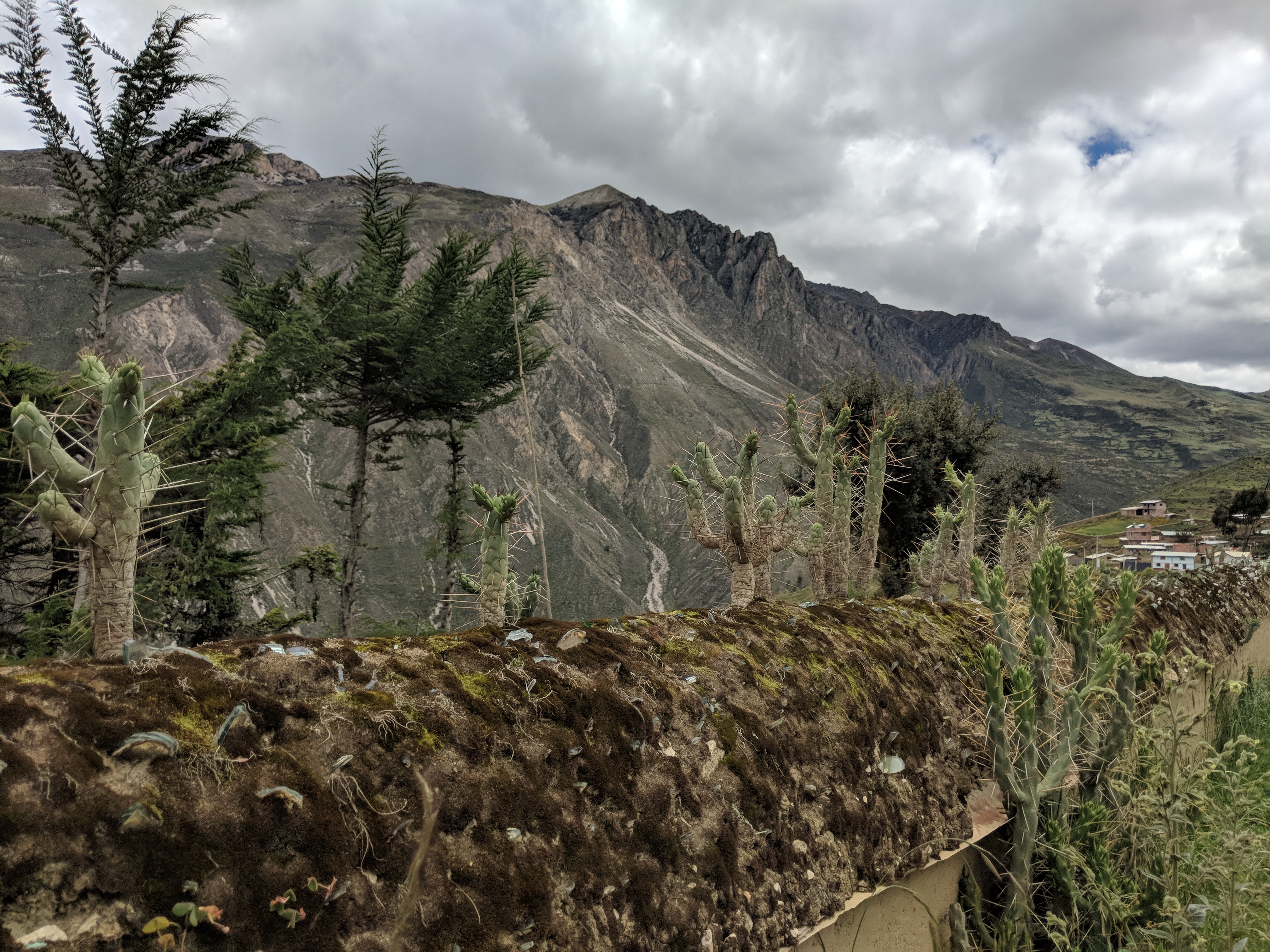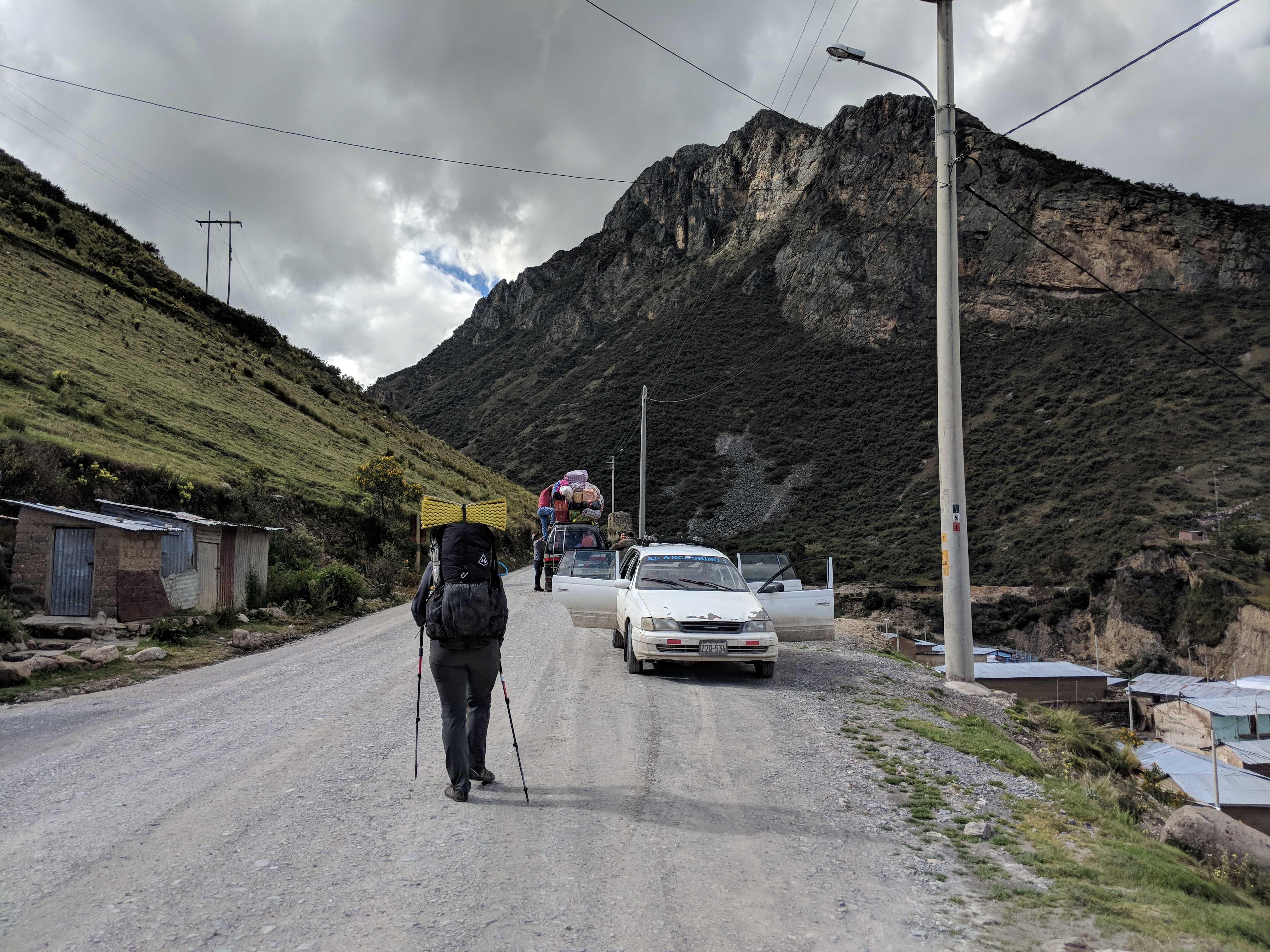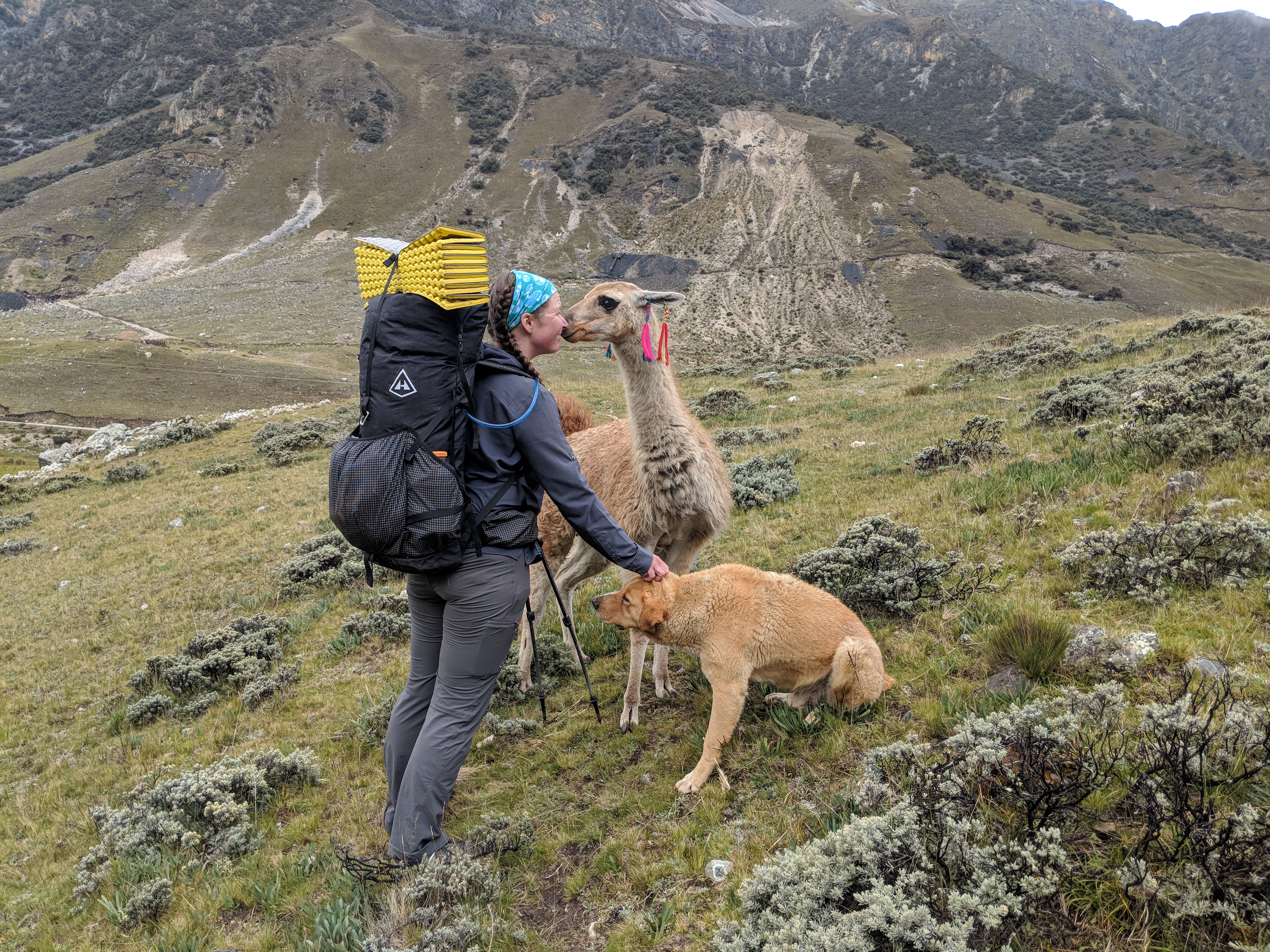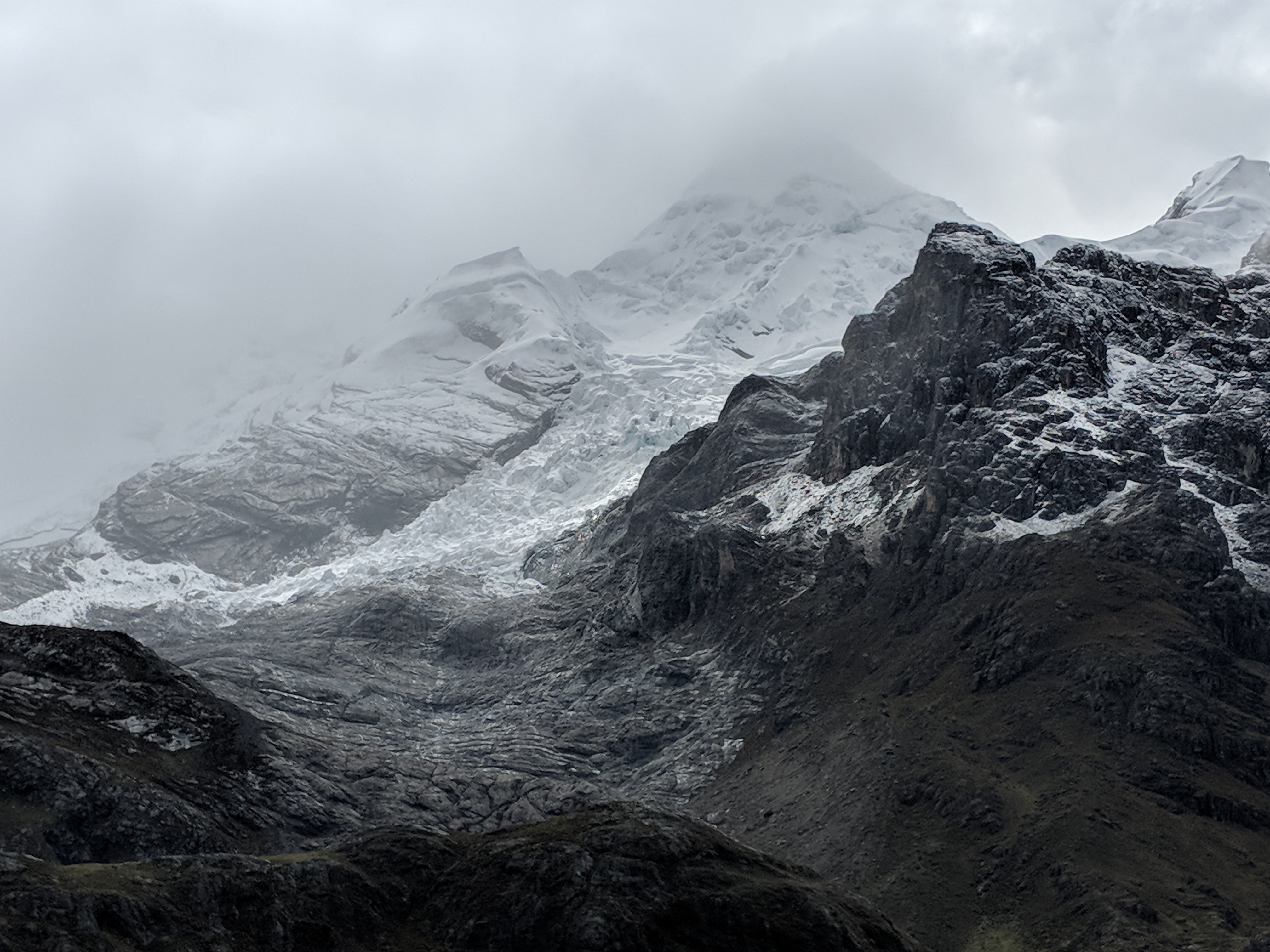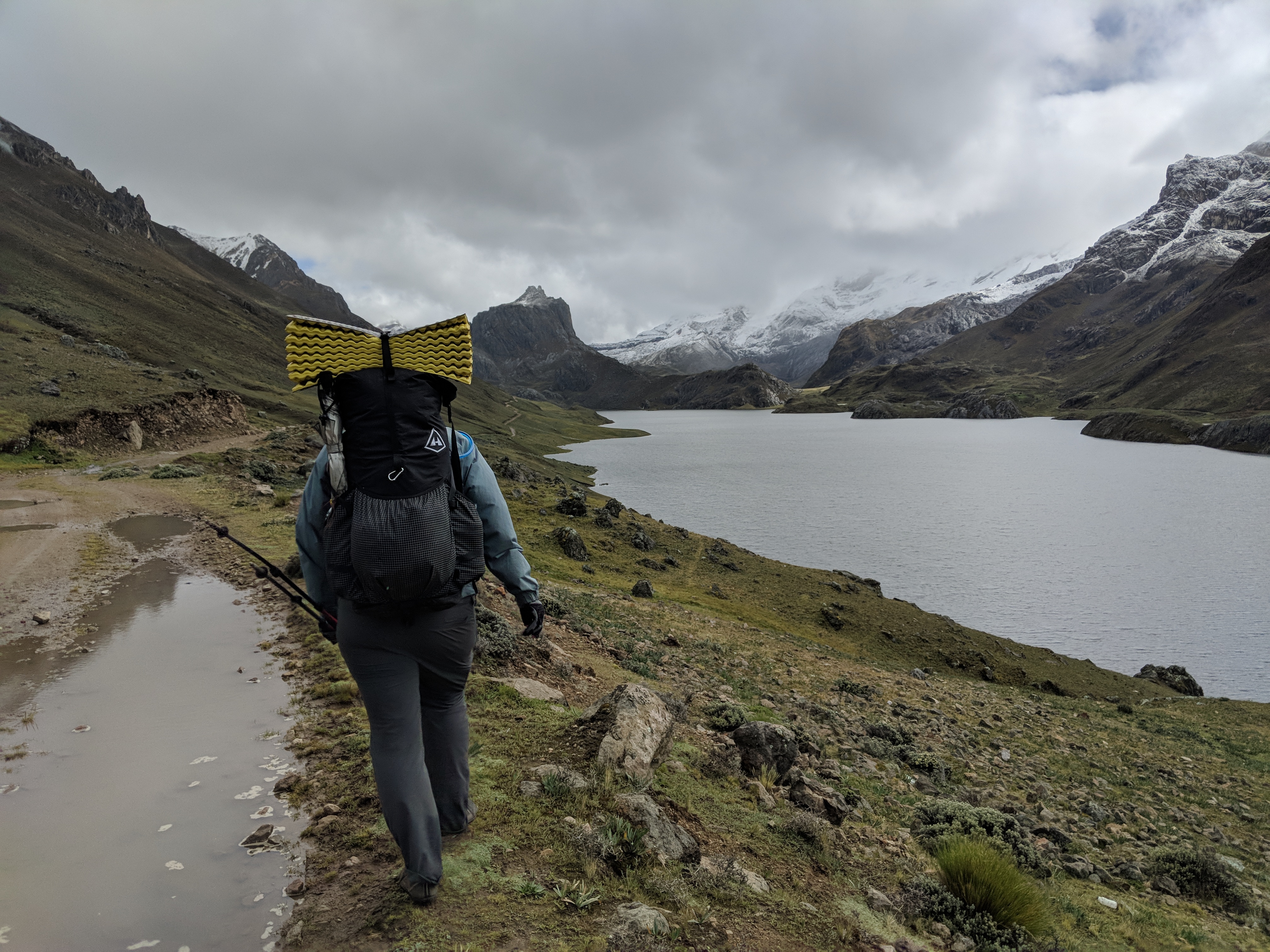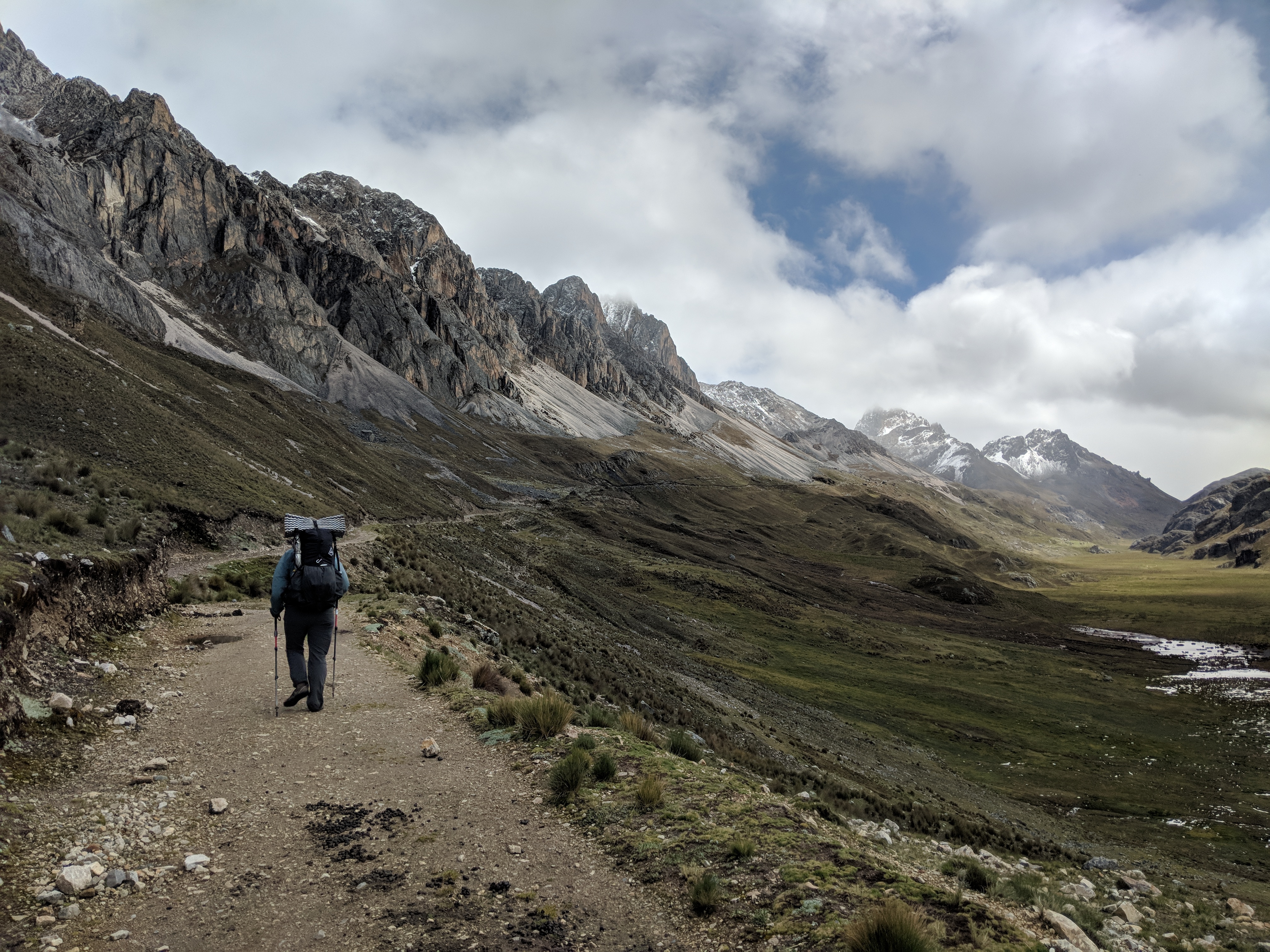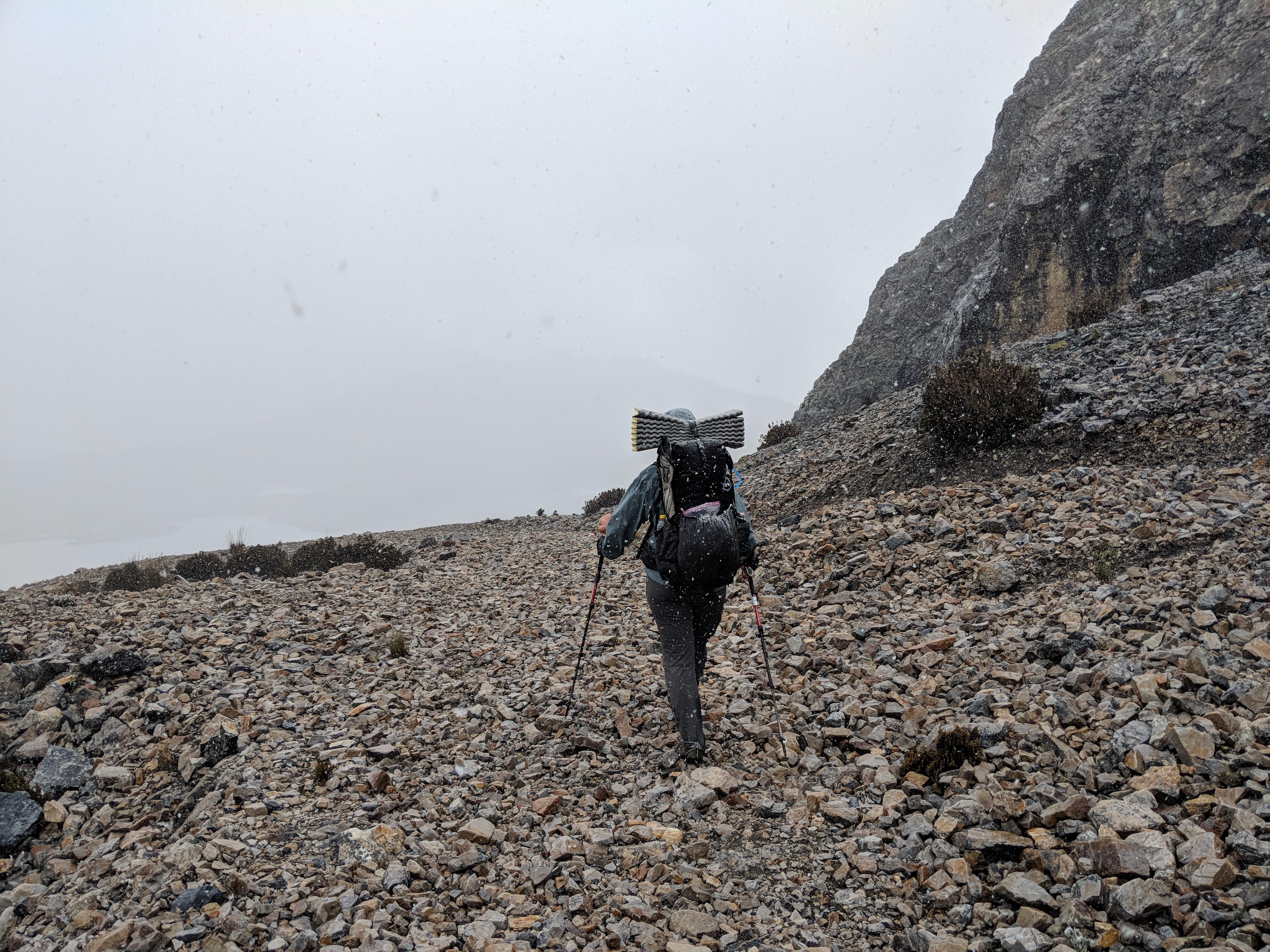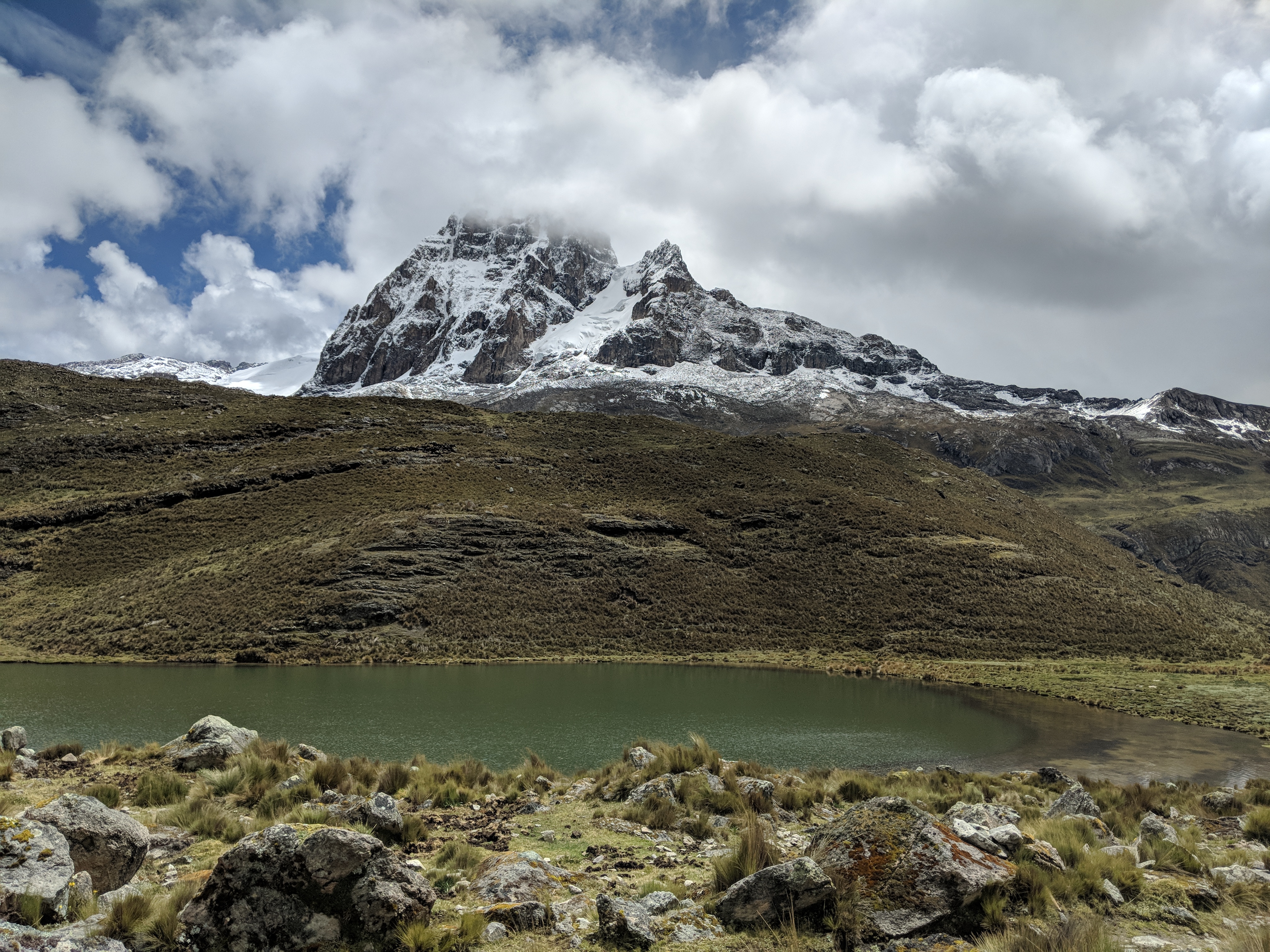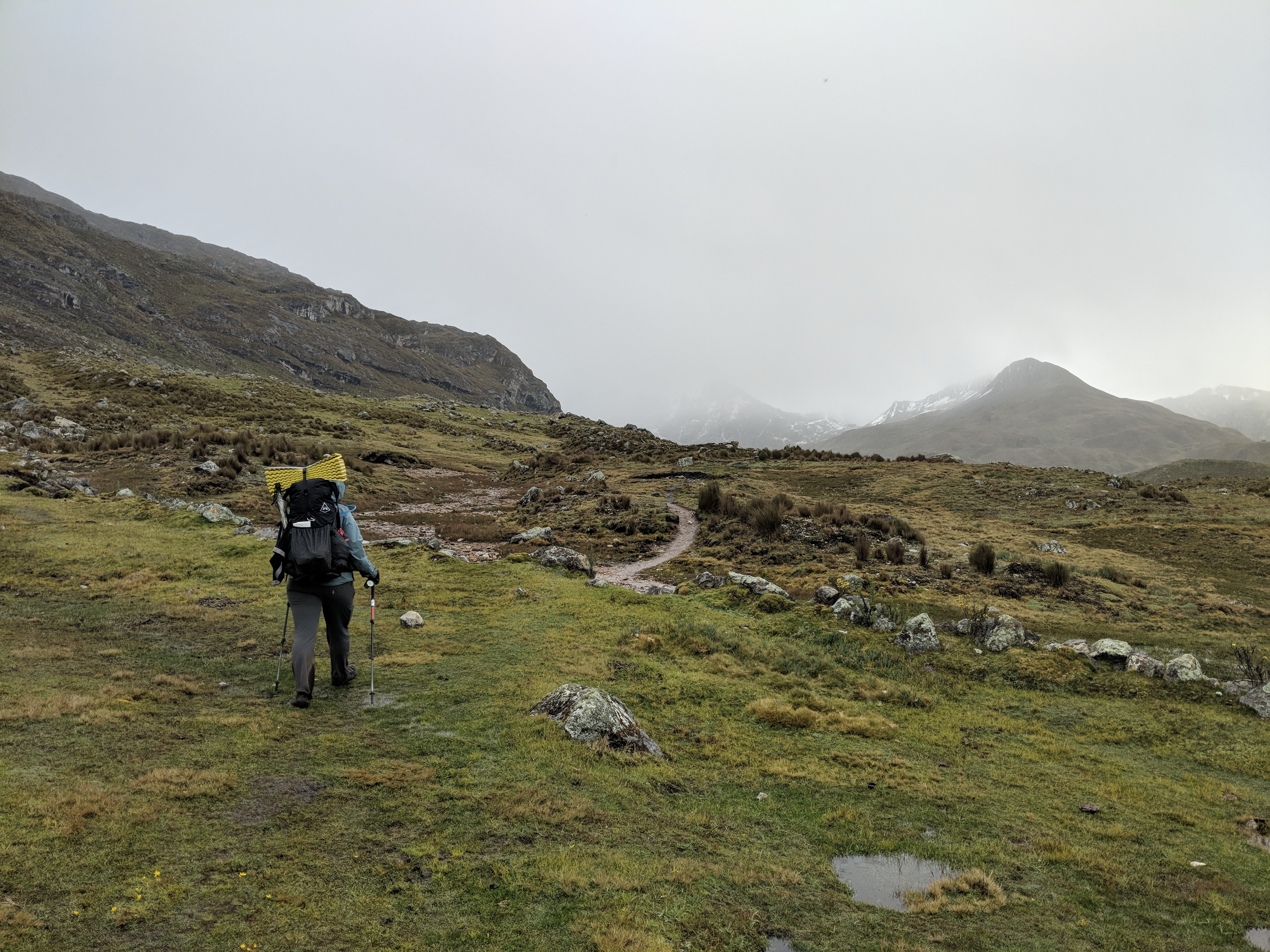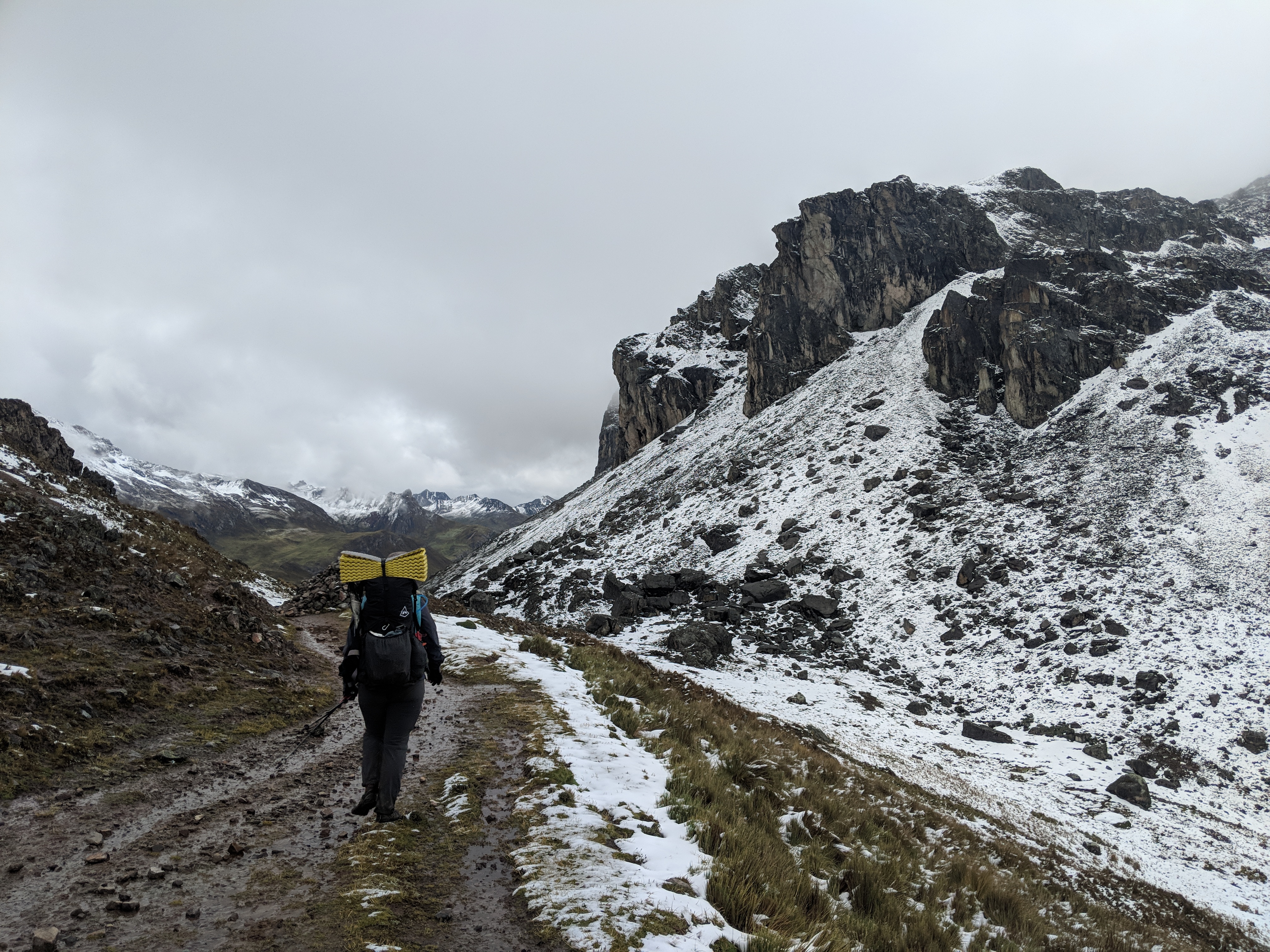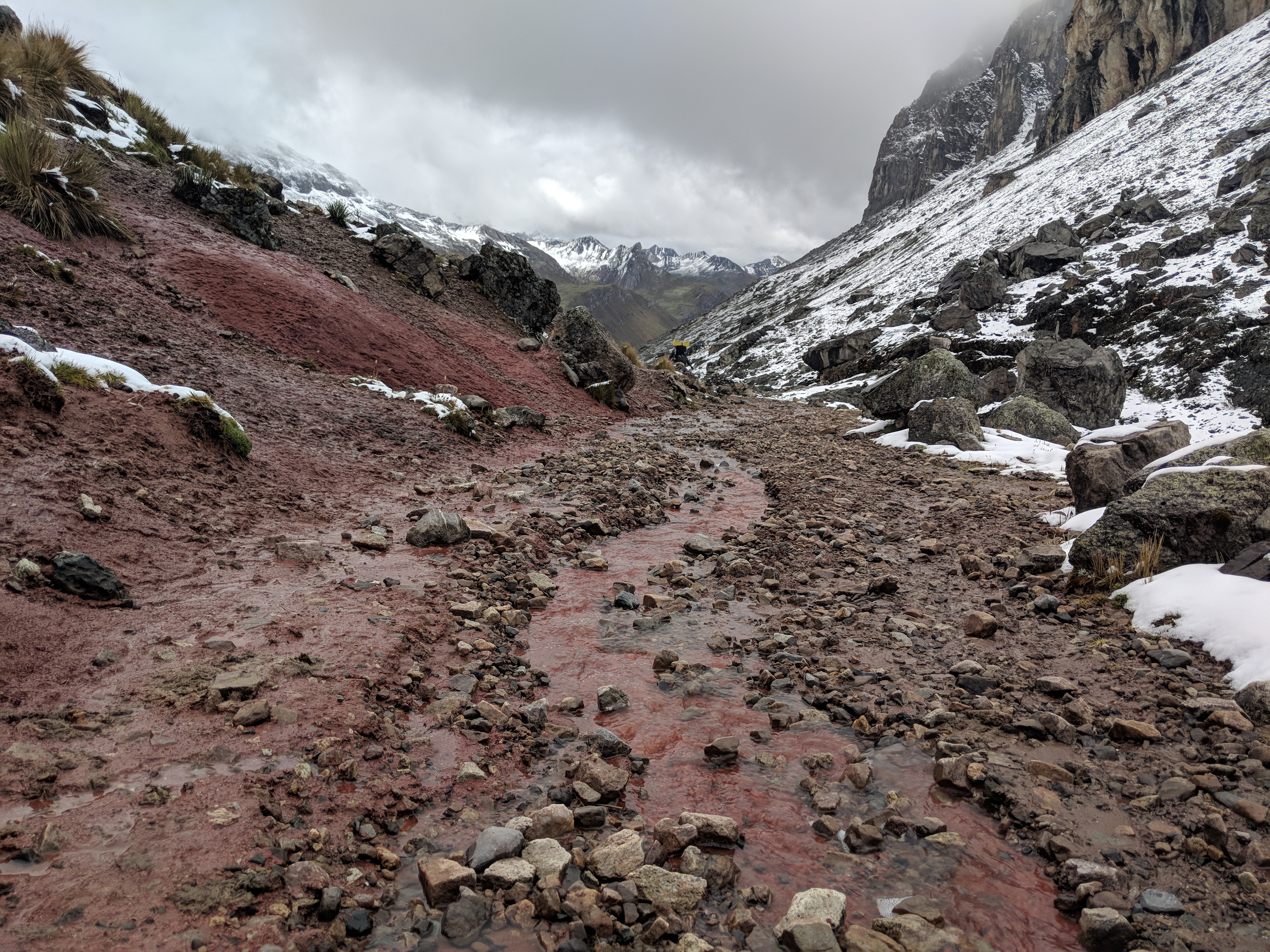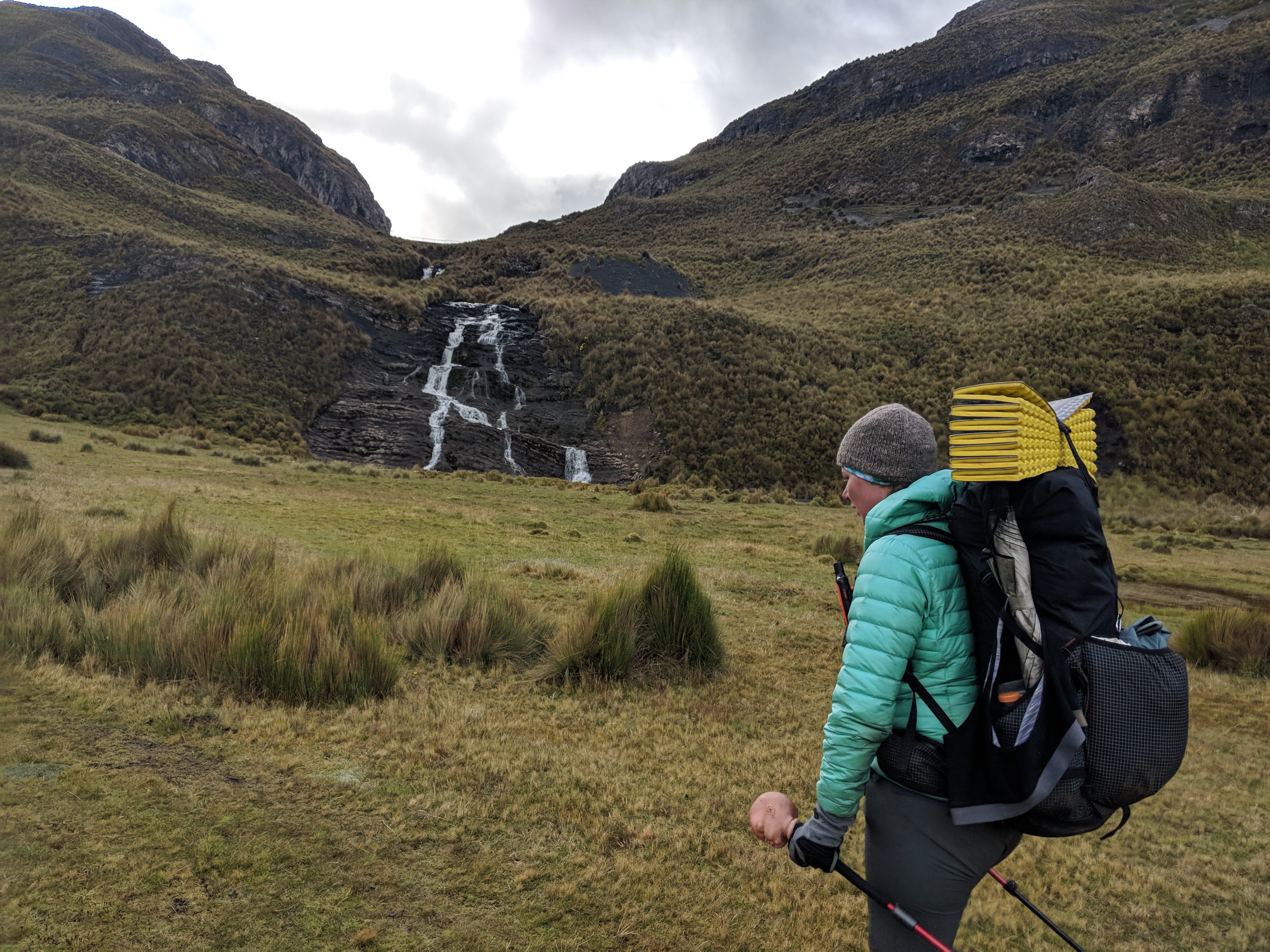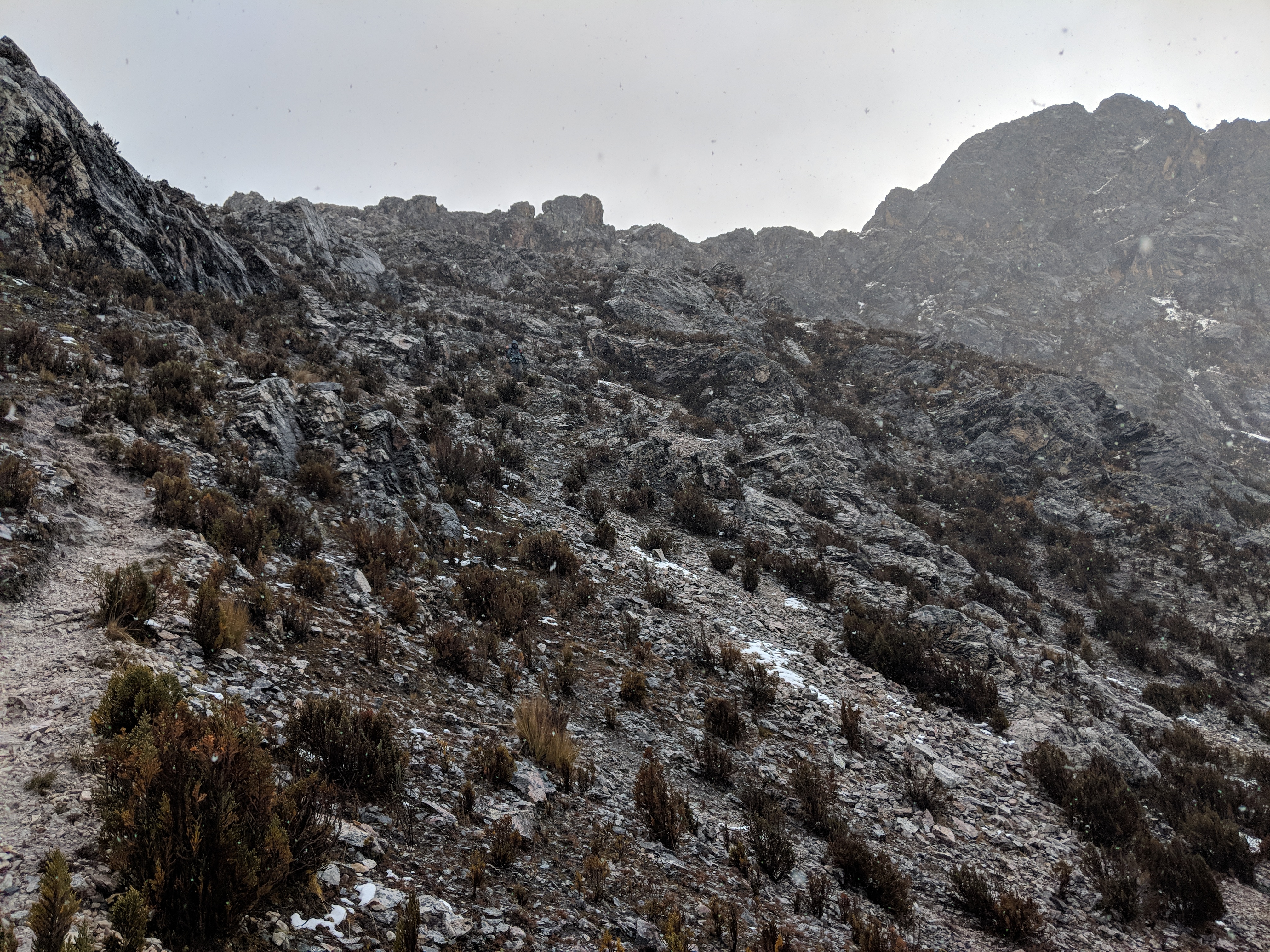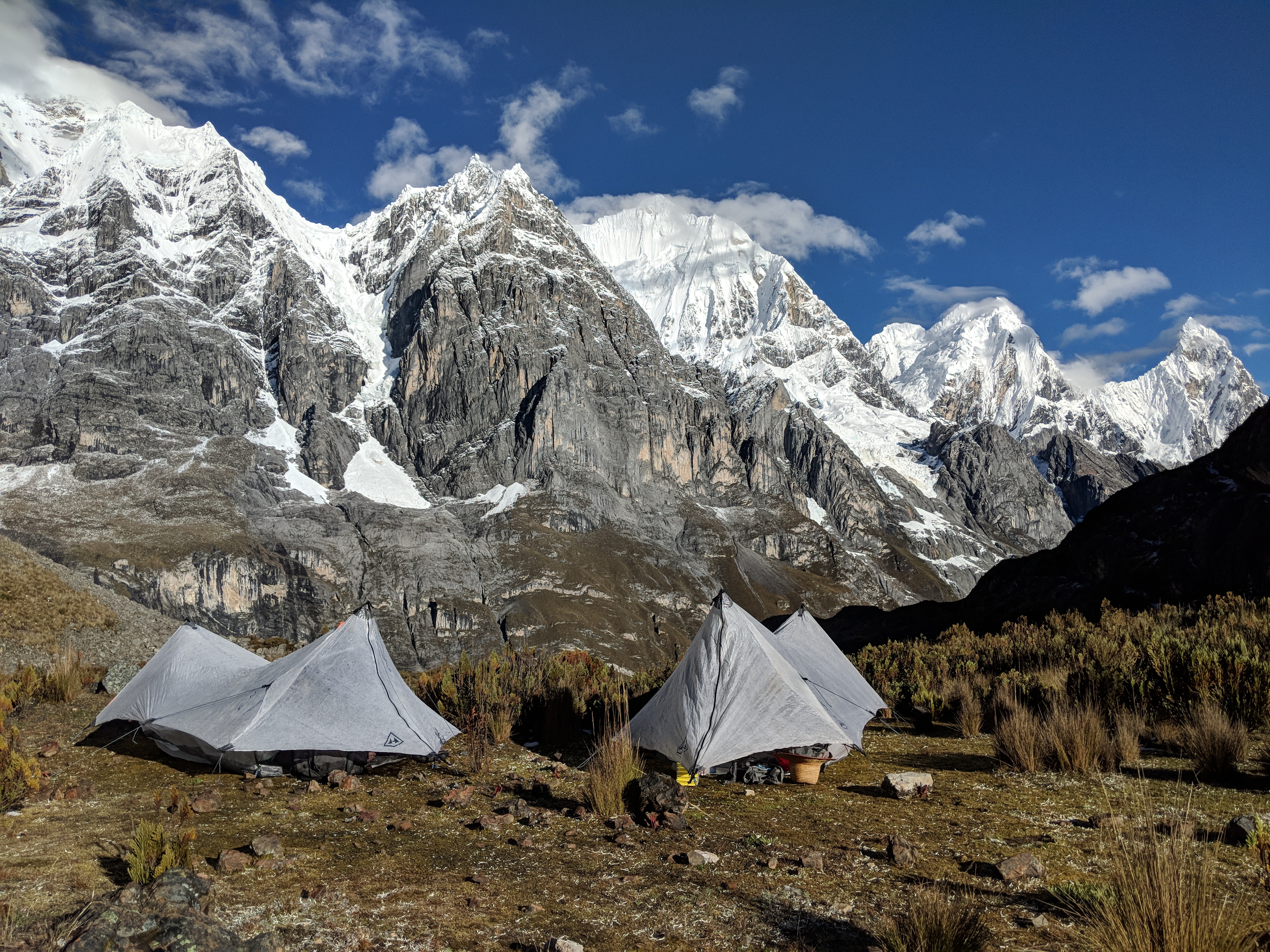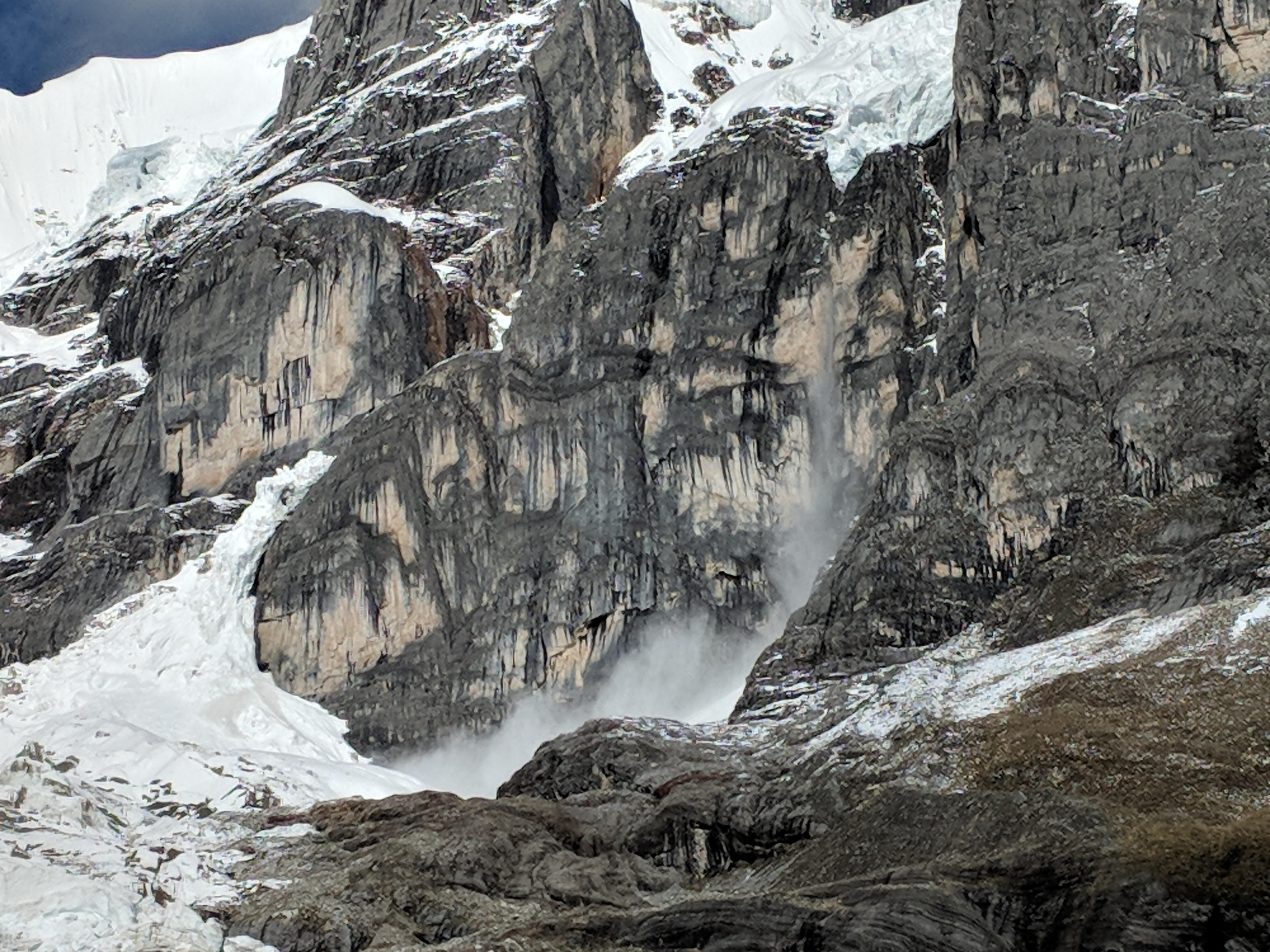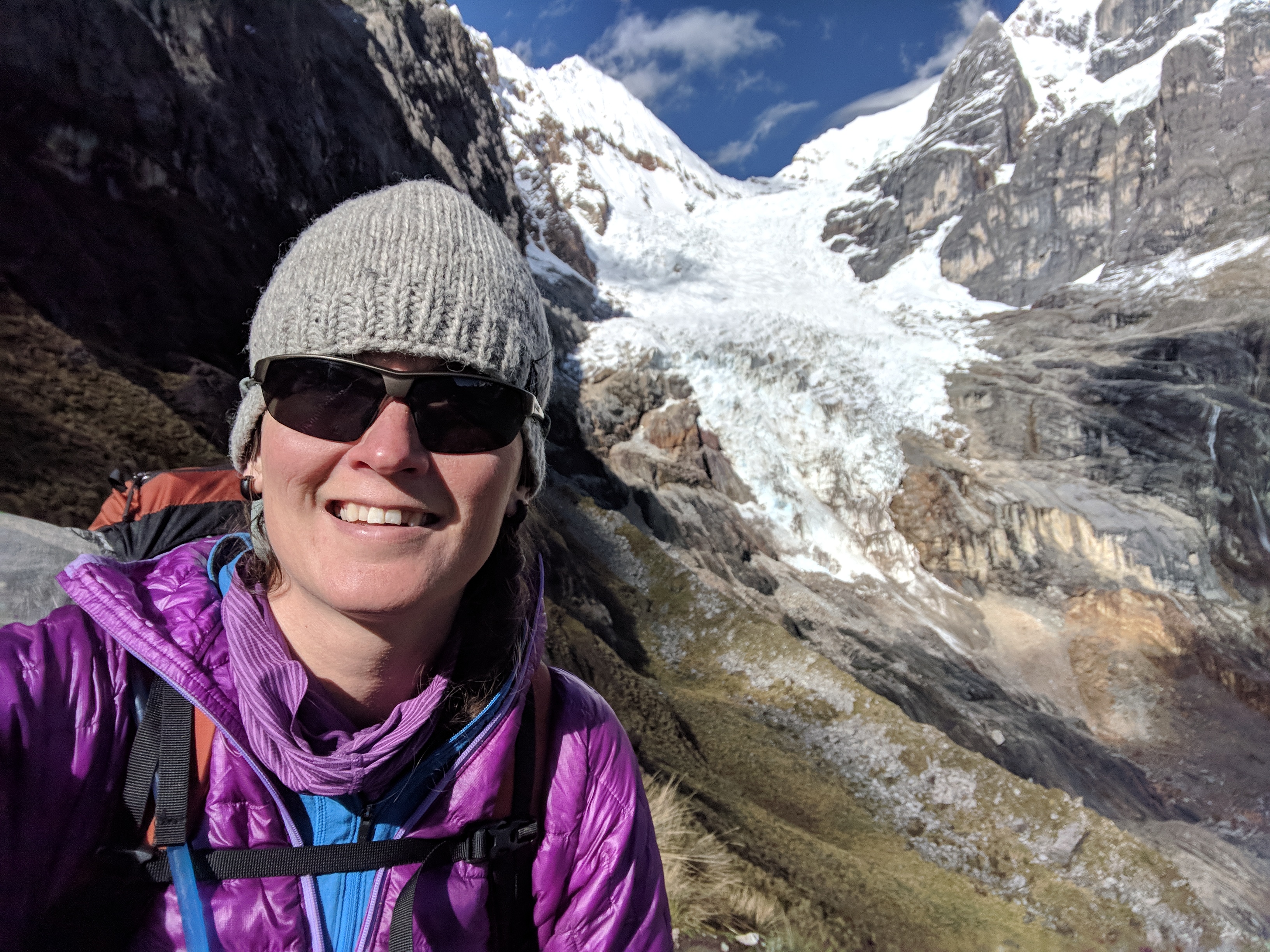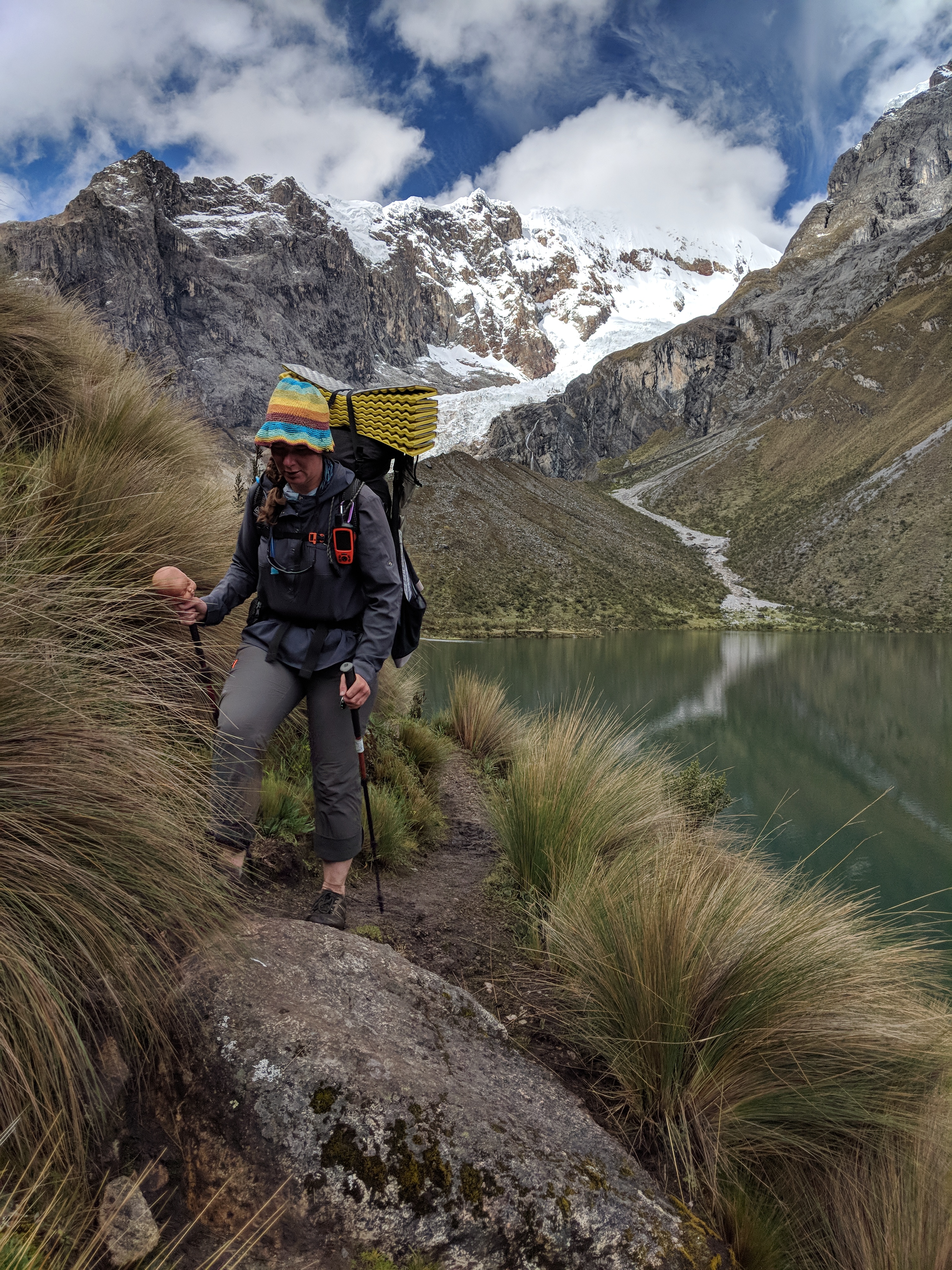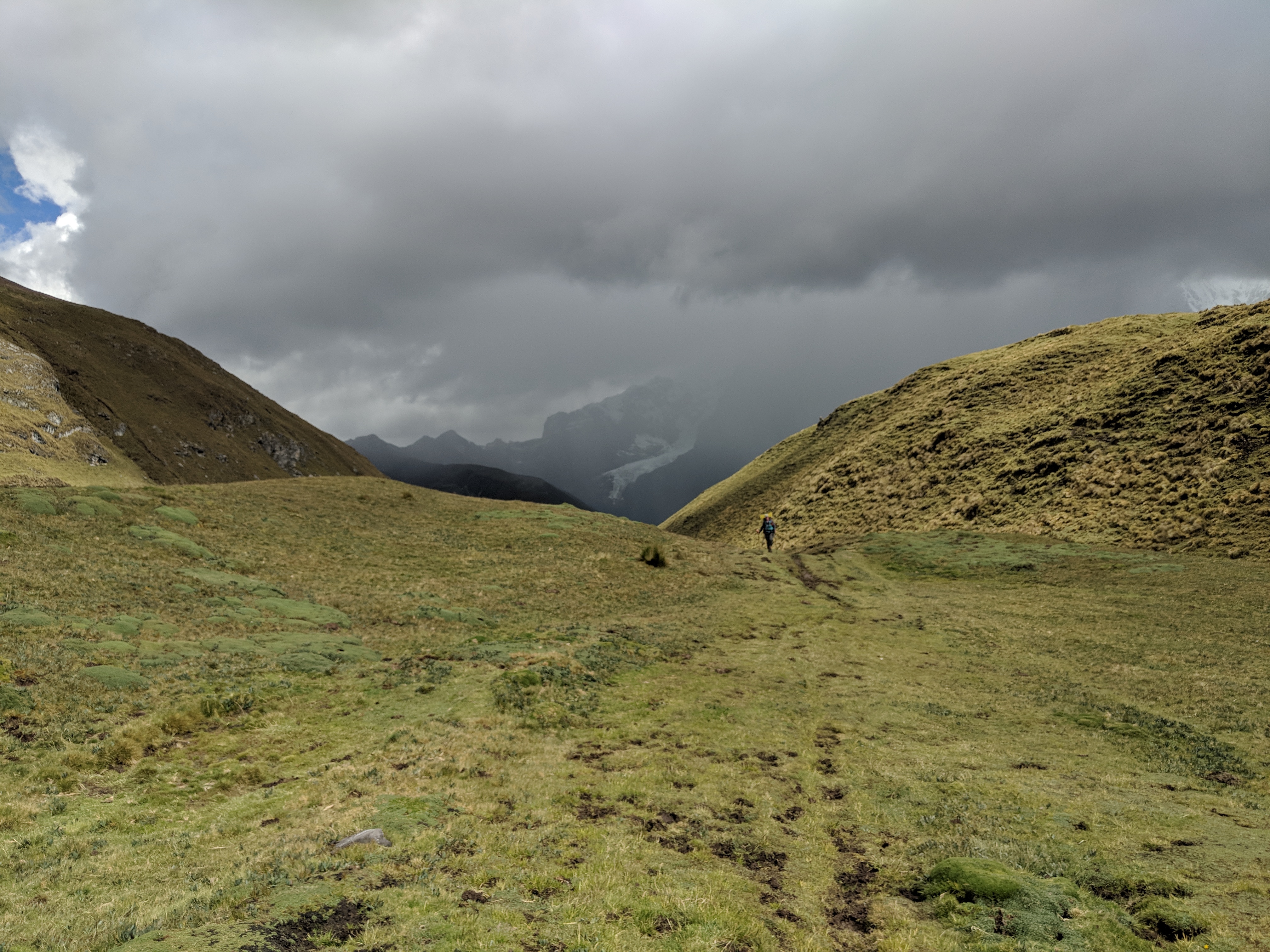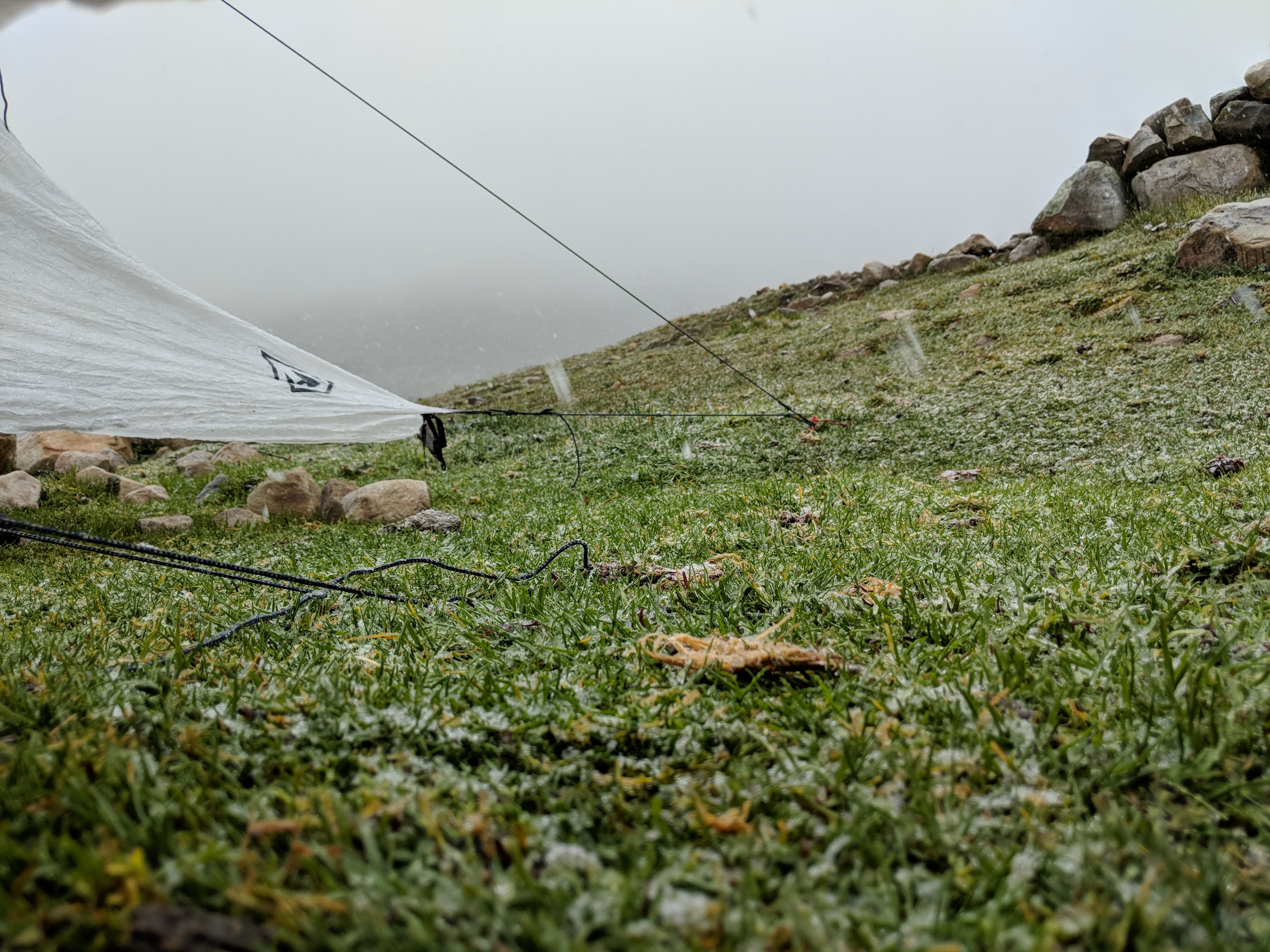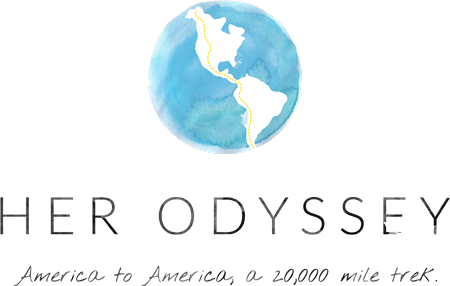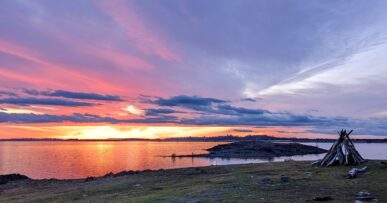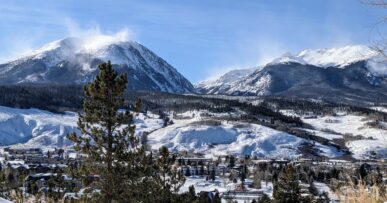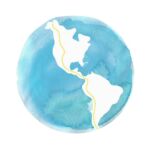Written by Neon
From the city of Cerro de Pasco, Fidgit and I rode a bus west to the small town of Oyon. We bounced and wound along the dirt road road for hours, including some hairpin turns that the bus had to back up a bit to get around successfully. We were very grateful to get to Oyon and rest for an evening before walking into the mountains.
Leaving Oyon, we walked up a dirt road that meandered along the valley floor. We followed the road as it narrowed and then ascended into a higher valley, walking below and then alongside a dammed lake. As Fidgit and I ascended into the mountains over a few days, the weather seemed to enjoy playing games with us. The clouds blew over quickly, spritzing rain at us before the sun would come out long enough to fool us into thinking it would stay before ducking back behind the clouds. ‘Rain gear on, rain gear off, over the pass, oh now it’s snowing’ became our daily routine of sorts as we made our way to the well-trod track of the Huayhuash (pronounced why-wash) circuit.
Where we intercepted the tourist circuit happened to also be a hot springs. As we descended towards the hot springs/campsite, we had an aerial view of the multiple giant tents that two groups were already setting up. The number of people in the middle of this wilderness was overwhelming for Fidgit and me – we’ve gotten spoiled being the only travelers most of the places we’ve been through since Cusco. We tried our best to be cordial, though being charged money to camp and one of the guides coming over as we were setting up our tents and openly staring from three feet away did not help. We did enjoy the hot springs and were eventually able to settle in for the night.
Waking up early to the sound of the guides and trekkers packing up and heading off encouraged us to get moving- it was the edge of the rainy season and the weather patterns get less predictable later in the day. Fidgit and I left camp soon after the last pack burro was loaded and led off by a guide who cursed it up the trail.
We made our way along the slippery mud of the well-rutted trail and ascended most of the morning to our first pass. Making it over the pass, we then began our descent, running into another unguided duo that were excited to see us and shared information on what was coming up. The couple told us that all the camp areas charged fees and how much, as well as the terrain to expect coming up. Fidgit and I shared what little we knew and headed our respective ways. Walking on, we decided to pass through the next camp area to avoid paying- we didn’t have much money and didn’t think they would charge us for walking through. As we walked through the next camp area, however, a local man came up and tried to charge us. For walking through the camp area. He couldn’t tell us what the money was used for, other than “It’s for the community,” and also wasn’t able to tell us why we should pay to walk through other than “everyone else pays.” We (mostly Fidgit, with me standing there looking sad) talked our way out of paying to walk through and continued along the route.
As we ascended to another 14,000+ foot pass, we had most of the valley to ourselves. We went up and the valley turned into more of a marshland reminiscent of the turba bogs we slogged through in Patagonia. We made it through the bog/river/trail to the pass in time for the sleet to come in, so the steep descent was . . . interesting, to say the least. We made it part way to the valley floor, found a flat spot and set up camp. Everything I had on was wet so I stripped down and curled up in my sleeping bag to try and warm up before dinner. The precipitation had stopped and Fidgit said, “Whoa!”- the clouds had cleared, giving us an awesome view of the valley we would descend into as well as the glacier-draped mountains towering around us.
After dinner and a restless night of sleep, we packed up and descended into the damp valley. The morning was astoundingly beautiful and I understood why so many people had been drawn to this area. This included the Shining Path Rebels that had formerly robbed trekkers in this area until the Peruvian government had recognized its tourist potential and cracked down on the group’s stronghold.
Fidgit and I made our way down along the valley floor, following a well-worn footpath and passing ways with a couple more guided groups to a kilometer-long lake. The trail went along three sides of the lake, so we decided to walk through a shallow marshland to avoid going out of our way before beginning the ascent to another pass. After our shortcut, we were able to meet back up with the trail, which was terribly rutted out from pack stock traveling through the mud so regularly as well as from the lack of trail maintenance. We slip-slid our way up to the pass and descended (once again) as the clouds rolled in and spritzed us enough to dampen our clothes.
Fidgit and I at this point were cold and tired of the elevation/terrain as well as being asked for money at every ‘campground’. As I mentioned, we’ve gotten used to being the only non-locals in the area, and the constant expectation of money for seemingly doing nothing from the locals was reminiscent of negative experiences we’d had in the past. We had seen that we could potentially get off the circuit before originally planned, so after we walked past another campground (where a local again requested money for passing through), we crossed a small stream and walked along a dirt road to get out of the area. We met a few locals along our new route – none of them requested anything of us and they all wished us a good trip as we passed. We felt reinforced in our decision to divert from the Huayhuash circuit even though it meant leaving the beauty of the mountains earlier than planned.
The rain continued on and off as Fidgit and I descended the rest of the way into the town of Huallanca. The dirt road disappeared into a field and we followed faint animal trails to another dirt road that then took us the rest of the way into town over the course of three days. After being cold and wet most of a week, it was relieving to take a warm shower and curl up in a dry bed for the night.
